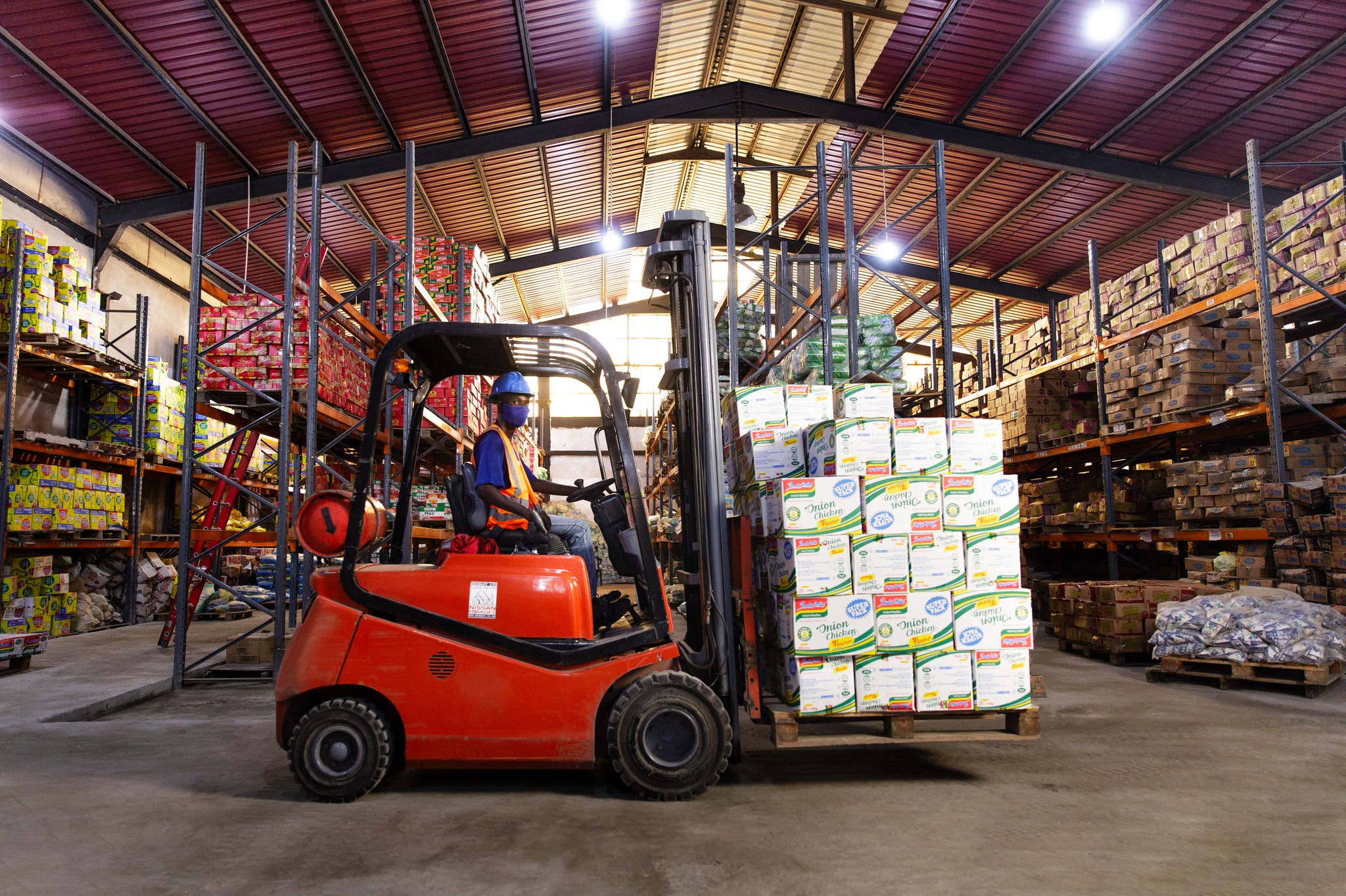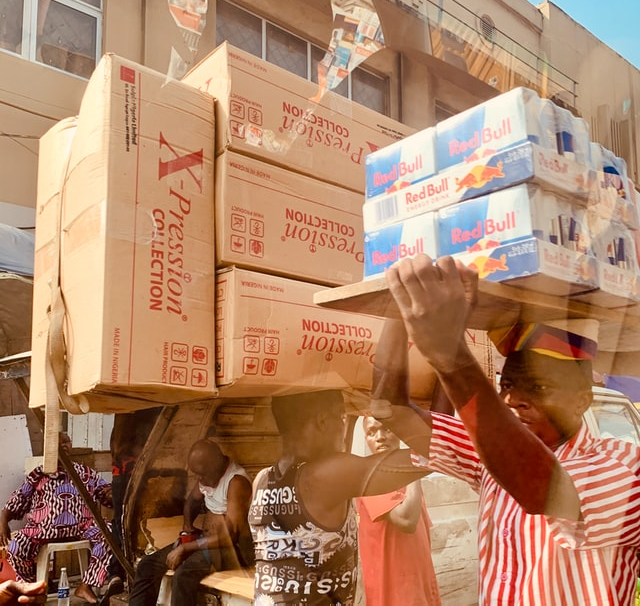As online retail marketplaces flounder in Africa, entrepreneurial hopes for ecommerce turn towards selling to businesses online. Business-to-business (B2B) ecommerce may be a promising route to digitising Africa’s huge informal and offline commerce, but it is not without challenges.
Per data from research consultancy, Briter, B2B ecommerce ventures in Africa secured more than $256 million in disclosed funding last year. Olumide Olusanya, CEO of PayMente Limited, and an experienced ecommerce builder, says B2B ecommerce is now a “vector of choice” startups in Africa leverage “for the primary purpose of financial inclusion of its mostly informal sectors”.
As B2B companies like TradeDepot, Wasoko (formerly Sokowatch), and even Jabu prove, B2B ecommerce has become the darling of digital commerce funding venture capitalists in Africa. Entrepreneurs see B2B commerce as the road to Africa’s informal markets, and VCs are placing bigger bets on those hopes. But, the road—literally and figuratively—to tapping ecommerce’s potential, by doing business with the African street retailer, is almost as bumpy as the road to the consumer’s door.
A path of least resistance
Investors and entrepreneurs are becoming increasingly interested in B2B ecommerce as they realise that the montage of colourful roadside vendors with bustling street businesses are more reliable clients than the occasional online shopper.
The harsh economic realities that continue to influence earning and spending also guarantee that buying consumer goods will remain largely offline in the near future. Consequently, the centralised Jumia version of ecommerce is losing to a model that emphasises selling to the vendors who retail to end consumers.
It is easier to persuade retailers to use digital channels to manage inventory than to convince consumers to buy every other achet of milk from a website. Retailers are also likely to be familiar with simple digital platforms like WhatsApp. As they are already exposed to digitisation at the communication level, ordering and receiving retail goods in bulk by tapping the Wasoko app on your Transsion phone is easy. It does not require learning new skills.
Furthermore, the International Trade Centre (ITC) claims that the global size of B2B ecommerce is 5 times larger than that of B2C ecommerce. Put simply, small businesses buy more stuff online compared to consumer purchases. In Africa, where offline retail reigns and household consumption may reach $2.5 trillion by 2030, it is easy to see why entrepreneurs believe that B2B marketplaces are a better ecommerce fit.
But even this low-hanging market opportunity is not a walkover.
A bumpy ride to the street shop
Distribution or “route-to-market” is the core business of B2B marketplaces. They are, in essence, little more than an order-made-easy frontend welded around distribution and warehousing.
Since this is both an aggregation and a distribution service that stops just one level above the direct consumer, it creates better delivery-value density (DVD) and helps marketplaces and manufacturers gather important data about informal retail flows.
But the advantage of a higher DVD—how startups measure the cost and efficiency of a delivery route—is slim when informal retailers are scattered all over the street. Supplying these informal retailers means that B2B ecommerce platforms are still exposed to so many infrastructure gaps that make selling directly to the consumer difficult.
One way of solving this challenge is to build more distribution points. The downside to that is that it is expensive and adds to the fragmentation at the wholesale layer of consumer goods distribution. To put it another way, each additional distribution point a MaxAB, for example, creates will eat into the density of orders they have to deliver and, hence, their margins.
As Olusanya (quoted earlier) noted, B2B marketplaces want to digitise informal retailing. But more than simply digitising the inventory and stocking process for street retailers, B2B ecommerce, in many cases, directly competes with wholesale distribution networks with a long history of serving informal retailers.
Replacing the wholesale operators who form the backbone of consumer goods distribution across Africa is not a light challenge. It is even conceivable that some of these non-tech wholesalers have exclusive business relationships with manufacturers. Ignatius Akpabio, TradeDepot’s Director of Growth and Strategy, agrees. “Because of how big they are, you can’t fight the system,” he says. Instead of competing with wholesalers, TradeDepot says it works with established wholesalers to get supplies and as distribution partners. “We are in a suppliers market in Nigeria, and, because of this, demand always outweighs supply. There is not enough supply for any one distributor, especially for an aggregator like us who are looking to be more pan-Nigerian and have a more expansive reach. If you don’t have these people as your partners, you will struggle from a supply standpoint,” Akpabio adds.
He disagrees, though, that TradeDepot will replace wholesalers. According to him, wholesalers are how TradeDepot gets supplies in very few cases.
It makes sense. The market is huge, and capturing a fraction of it, especially in key urban locations, sounds like a winning strategy. Although good numbers are hard to come by, a 2013 survey of micro-small and medium enterprises (MSMEs) in Nigeria, conducted by the Nigerian Bureau of Statistics and the Small and Medium Enterprises Development Agency of Nigeria put the number of MSMEs in the country at more than 37 million. Small consumer goods shops make up a good percentage of that figure.
So, while B2B ecommerce may not be a threat to offline wholesale networks today, managing the complex relationships that underpin a B2B business is a conversation startups in this space will have to have sooner than later. Any business that simultaneously deals with wholesalers and African street shops has to.
Taming the streets
In 2020, Joseph Aito, a former Pernod Ricard sales manager, shared the story of Chinedu Okoroafor, a Nigerian whom he claimed netted ₦1 million monthly from hawking edibles in Lagos traffic.
Within 4 years of living in Lagos and selling snacks in Lagos traffic, Okoroafor went from making ₦40,000 a month to earning around ₦1 million a month from hawking and operating a loose network of hawkers whom he supplied with both credit and products.
Aito’s story highlights the lucrative and eccentric relationship between FMCG manufacturers, wholesalers, and street retailers.
As Olusanya told TechCabal in a call, one feature of the retail scape is how retailers, and even a few big supermarket chains, prefer revenue over efficient inventory management. One may dismiss this as senseless irony because being more efficient may translate to better revenue. But, again, as Aito’s story shows, consumer goods distribution in Africa can be irrational. Aito wrote: “Managers from multinational companies started to seek him [Okoroafor] out. He provided a unique service to them. When they need a quick sales spurt to end the month on a high, they visit him, offering a larger discount than is typical. In a similar vein, when consumables are close to expiry, these companies offer him ridiculous discounts, sometimes as high as 60%, to sell off the stock.”
What is more? The bulk of Okoroafor’s sales came from reselling these products to other retailers in his network.
Inventory management is met with a blank expression for “retailers” like this—and they are not only roadside hawkers. In this type of environment, where turnover is the primary concern, a B2B marketplace selling “efficiency” to retailers may be talking to a wrong, or, at best, limited market.
Ordering new inventory from a smartphone is easier and cheaper for retailers, but the real party benefiting from efficiency are the makers of consumer goods. Instead of sending a sales representative to drive around blindly with supplies, they simply pass on the headache to B2B intermediaries like TradeDepot.
Because B2B ecommerce startups are primarily regional and operating in relatively new territory, the competitive bloodbath is not apparent. However, as the space becomes more defined and more local competition arises, retailers will be spoiled for choice in a low-margin business. On the positive side, this may lead to interesting mergers and acquisitions (M&A). We already see some of that. Last year, TradeDepot, Nigeria’s leading B2B ecommerce startup, alone raised $110 million. By February 2022, it acquired GreenLion, a Ghanaian B2B ecommerce startup and launched buy-now-pay-later schemes for its retail partners as it plotted an ambitious expansion programme.
This competition and M&A may even touch startups like Kippa and Oze, who are working on digitising informal retail records.
The jury is still out on how much digitisation B2B ecommerce can drive. What is clear is that digitising African commerce will not take the “digital-mostly” shape found in China because B2B infrastructure relies on and even enables Africa’s dukas, spazas, and provision kiosks to sort out the last leg of commerce.




















